[ZX Spectrum, Julian Gollop / Red Shift]

My dear nephew, I’ve been informed that you’ve been asking questions about how our family conquered the Nebula Empire. Such queries tread a fine line between curiosity and insolence. It would serve you well to remember your place, but since you are family, I will enlighten you on how we came to power.
I was born within the affluent Oculid system, nestled deep in the heart of the Cloud Nebula. How I solidified power in that first nucleus of an Empire, I leave to your fertile imagination. Suffice it to say that my ambitions did not end there. My consortium of advisors, skilled in the subtle art of resource management, presented a metric they termed “resource points”. They calculated the cumulative wealth of my system – its industries, its scientific minds, its starship fleets, its legions – into this singular value. They estimated that my system could accrue three such resource points every millennium, and had accumulated six thus far.

The right view shows current resources (number) and the resources generated every turn (3 for cyan, 2 for green, 1 for pink)
Not far from my Seat of Power there was another particularly wealthy Arachton world. I immediately invested 5 resource points to send troops to that world. Intersystem travel was at that time terribly expensive : 1 resource point per unit of distance, and so 3 of those 5 resource points were burned into this journey, but we made it. The local population had not mastered space travel – none of the civilizations of the Nebula did – and immediately submitted. The acquisition of their wealth doubled my empire’s resource production, promising another three points every millennium – forever.
It was then, in our moment of burgeoning power, that a disquieting piece of news hit us…
... we were not alone.
Of course, we knew this, what with the Oculids and Triptons and Arachtons all over the nebula. But we thought we were the only grabby aliens in the Nebula. Alas, that accursed race from Outer Nebula, the Drakars, planned to out-grabby us as it was building its own empire. They had brought, historians now believe, no fewer than 9 resource points from whichever black hole they spawned from, and they immediately occupied a wealthy Stellasor system, signalling the beginning of a new cosmic power struggle.

Still, in the beginning, they were no more than a hypothetical threat – they were far away and space travel was so expensive back then. We ignored them and expanded locally during the second millenium, as did the Drakars who drew from their huge reserves to make an audacious leap across the Nebula, claiming another resource-rich system for themselves.
It was during that era that I first heard about the Plague, but, I have to admit, I initially dismissed it as a mere distraction. It was after all hitting neutral systems at the bottom edge of the Nebula ; it seemed irrelevant to my purpose.

The expansion of our empire and of the dominion of the Drakars continued during the third millennium. Slowly, surely, destiny was bringing both of us toward the center of the Nebula.
… I jest ! It was by deliberate design that I tried to occupy the Oculid worlds in the middle. I wanted to defeat the Drakars as soon as possible, as I saw no advantage in delaying a confrontation that I could not avoid.

A trade boom at the end of the third millennium doubled the accrual of resource points, allowing a particularly explosive growth during the fourth millennium. Our Empire managed to seize two additional wealthy systems at the edge of the Nebula but also to occupy most of the central systems. Those systems were mostly poor, I knew, but they were going to force the Drakars to either deplete resources travelling “through” them or to conquer them one after the other.

The Drakars chose the latter, and the end of the fourth millennium saw the beginning of the Great Nebula War. The Drakars struck decisively, wresting control of one of our less poor central systems.
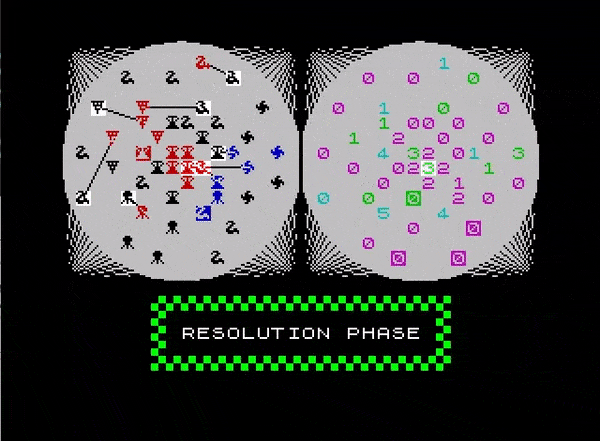
The fifth millennium saw more fierce fighting at the centre of the Nebula, and we managed to push them back somehow. More importantly, while the Drakars were squandering their inferior resources in gritty combat for the middle of the Nebula, I was also progressing on its edge. Eventually, all the Arachton worlds were under my Imperial control, and their race immediately pledged allegiance to me.
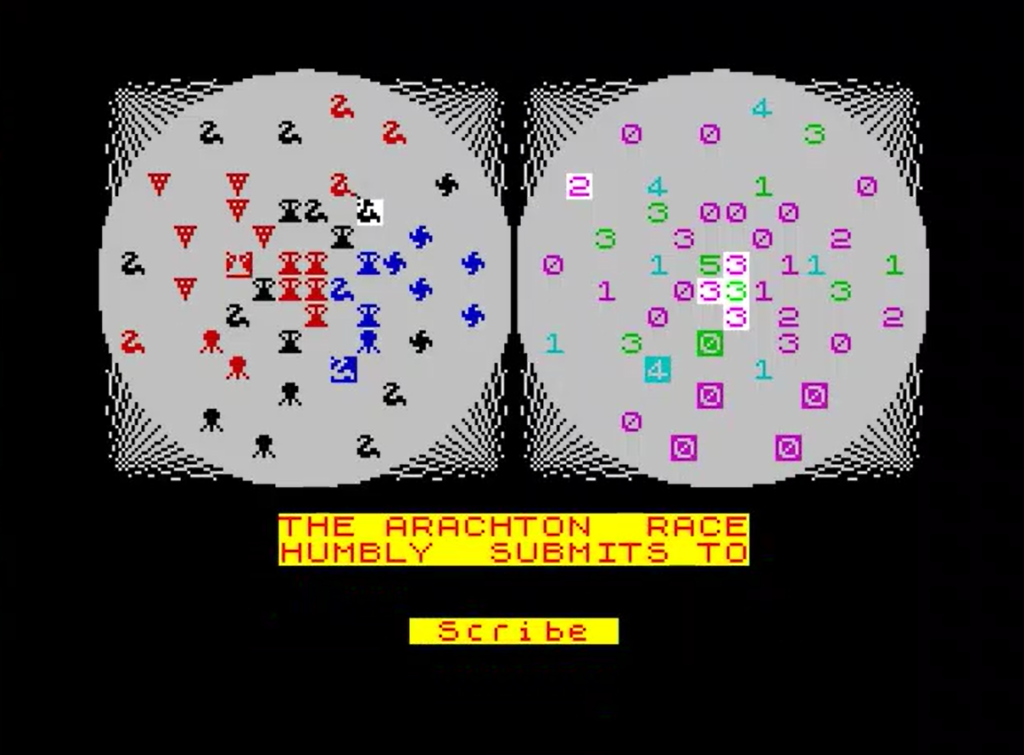
It is also during the fifth millenium that, for the first time, the plague reached one of our systems, a “cyan” one at the bottom of the map. This once-prosperous world began to haemorrhage one resource point with each passing millennium. Soon, I would face a bitter choice: either to abandon this system or to maintain it for as long as possible by sending resources from other worlds.
In the following millennia, the Great Nebula War consumed billions of lives in the middle of the Nebula, all for nothing, as the borders remained stubbornly static. But I had a plan ! As our forces at the frontlines held their ground and expanded at the peripheries, the rear systems, physically removed from the combats, had to play their part. We channelled their entire resource output into our scientific endeavours. All their resources were allocated to science. Slowly, oh-so-gradually, over thousands of years, our technology level increased, and the once-prohibitive cost of travelling diminished. I could finally marshal resources across all my systems efficiently !
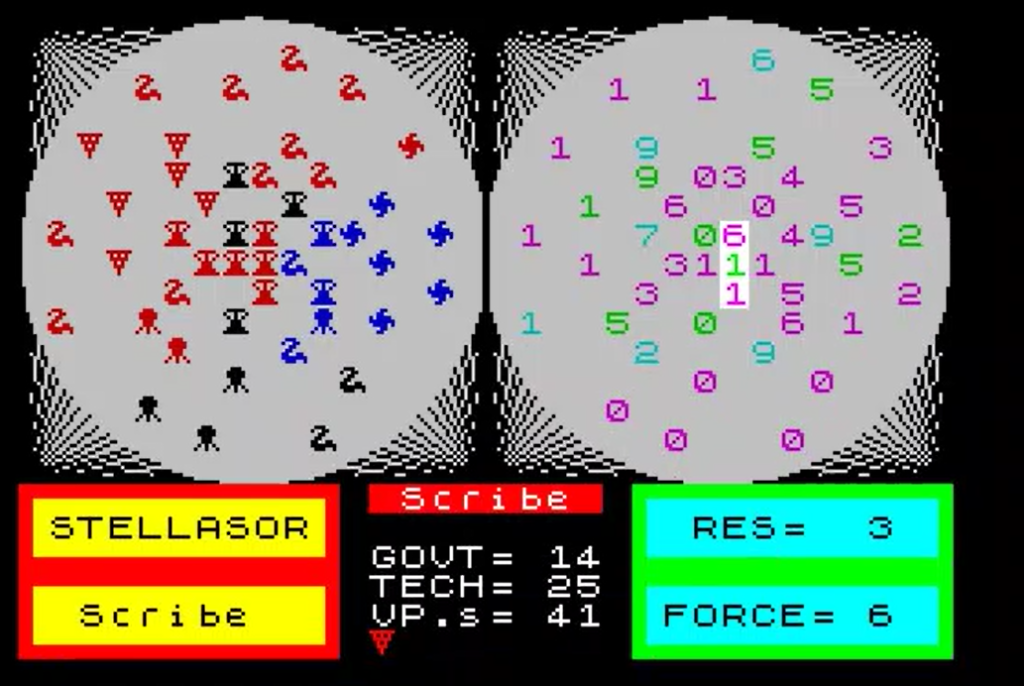
As the ninth millennium drew to its close, our moment had arrived. We launched a campaign, a masterstroke that would finally tilt the balance of the Great Nebula War.
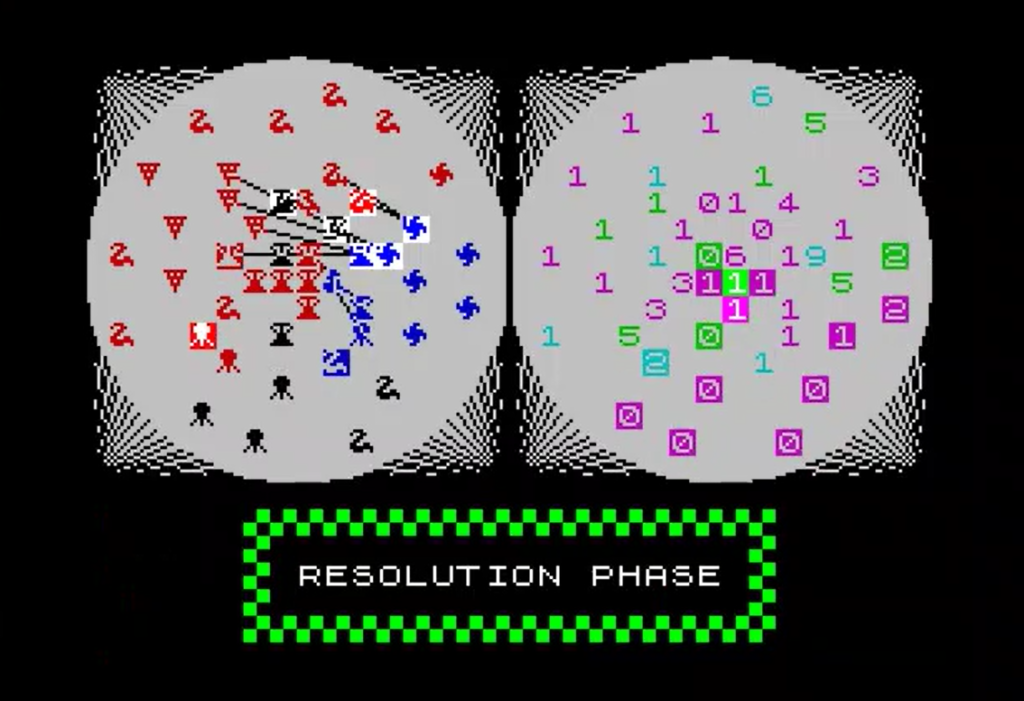
The attack was brutally effective. The systems we had targeted were those that were still untouched by the Galactic Plague. In truth, I am not sure what killed the most Drakars : the Plague or our Space Navy, what’s sure is that by the 10th millenium, the Drakars were finally net negative in resources – their Dominion was riddled with too many plagued systems. The war ended, lacking resources for the Drakars and a healthy system to conquer for us.
During the 11th millenium, the once-mighty Drakars just… died out, except in two remaining strongholds :
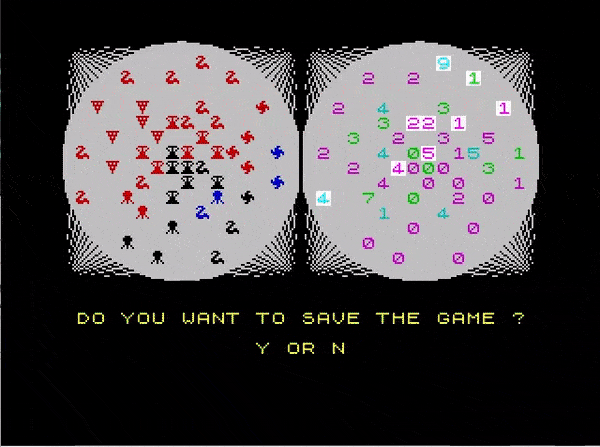
When the plague suddenly abated during the 12th millenium, the Nebula War could resume.
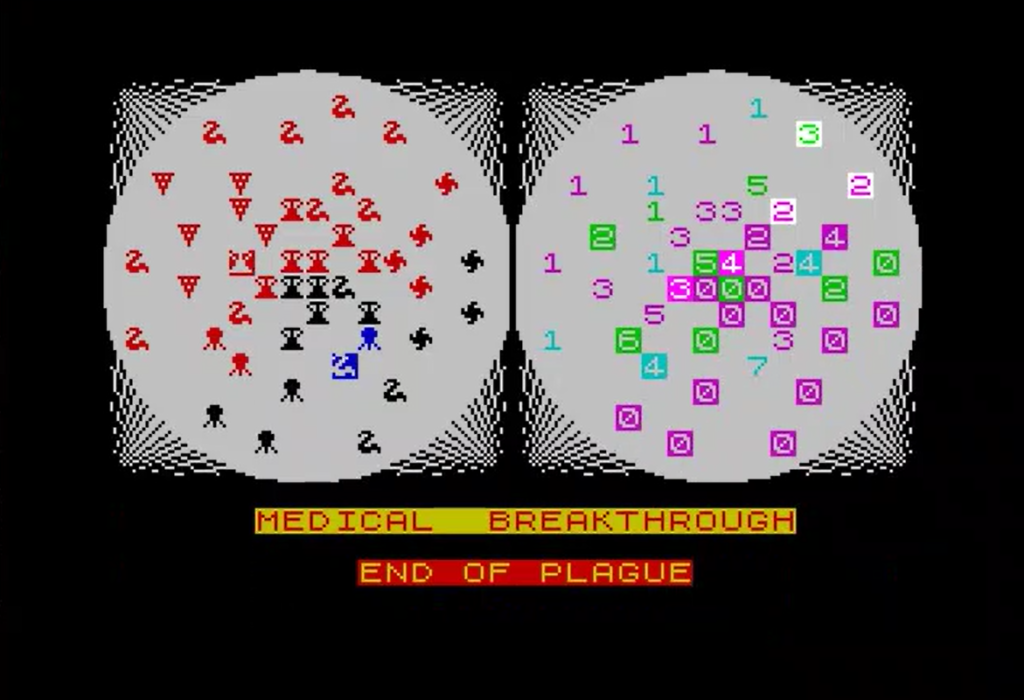
There was nothing Great about that war anymore : the Drakars were barely in a condition to muster a defence and it took me only two millenniums to bring the War to its conclusion :
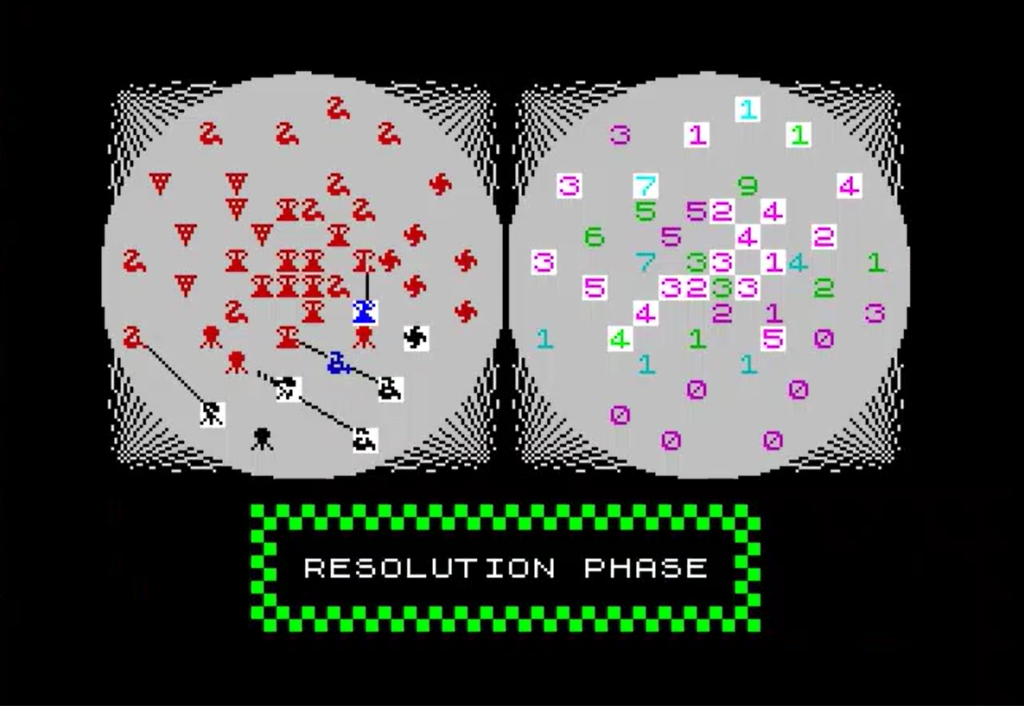
So, my dear nephew Tawala, I trust you now grasp the intricate tapestry of events and decisions that spanned 12 millennia to forge our empire. Your youthful assertions that a Galactic Empire could be built in a mere thousand years are naive. Should you continue with such impudent inquiries, perhaps you’d appreciate firsthand the challenge, in the form of an exile. Reflect upon this well.
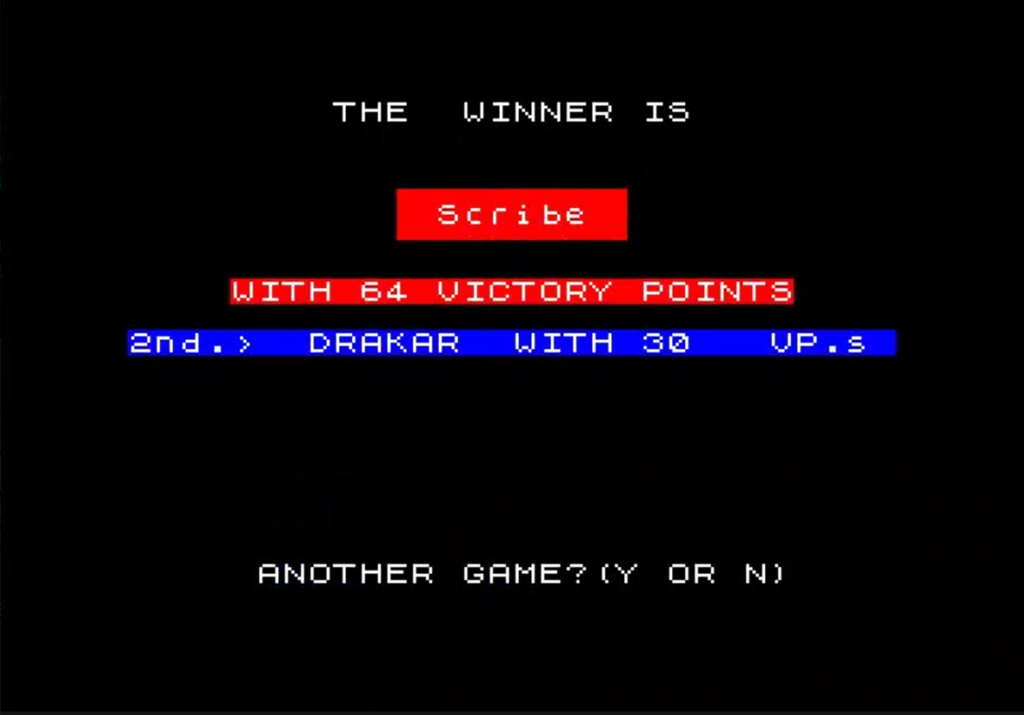
Rating & Review
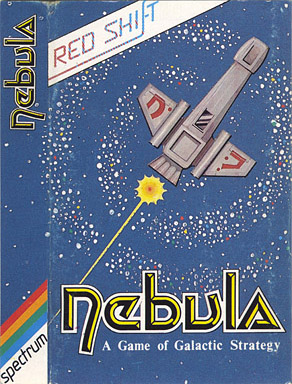
Nebula by Julian Gollop, published by Red Shift, UK
First release : Possibly November 1983, maybe later on ZX Spectrum (see below)
Average duration of a campaign : 1 hour in solo
Total time played : 3 hours in solo + some multiplayer
Complexity: Low (1/5)
Final Rating: Totally obsolete
Ranking at the time of review : 32/106
While Nebula – Julian Gollop’s second game – had been designed for multiplayer, it fails spectacularly in that regard. Yet, its ease of play and aggressive AI opponent makes it pretty interesting in solitaire. Alas, its lack of depth and weak side features give it little staying power.
I already covered Julian Gollop’s early designer life in my earlier article on Time Lords. Immediately after finishing coding the latter with the help of his friends Simon and Andrew Greene, the then 18-year-old Gollop wanted to try to develop a game alone. This time, his starting point was a SPI boardgame he liked called The Sword and the Stars (1981), which he simplified beyond recognition, except for a few words and concepts here and there (in particular the name of the antagonists: “Drakar” vs “Draka” in SPI’s game).
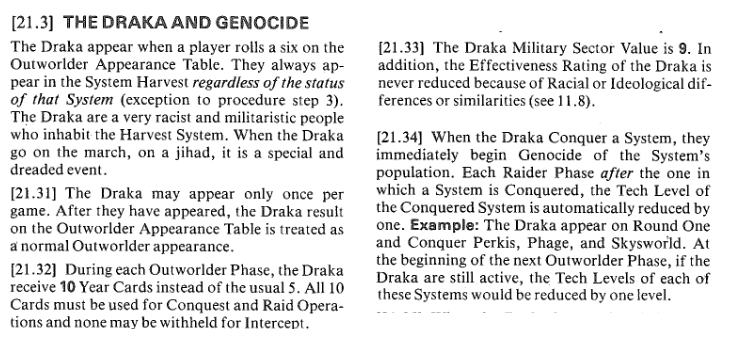
The timeline of what happens next is blurry. Gollop seems to have finished his game by the end of the summer and joined Red Shift a bit later (Fall 1983 ? Early 1984 ?). Nebula was first mentioned in a tiny November 1983 article of Popular Computing Weekly and shown (as a “pre-production” version at a ZX Microfair in December 1983, though it was not actually shown in any ads before February 1984 so possibly it was not available yet in 1984). Still, I choose to consider it a 1983 game, if only to make it clear that it was both coded and released before Islandia, as many sources including Wikipedia (at the time of the writing) claim the opposite.
Gollop designed this game as a multiplayer game (the Drakars only show up, sadly, when playing solo) and I actually tested this game in multiplayer with the help of some of this blog’s commenters. I will review the game in solitaire with notes on the multiplayer aspect.
A. Immersion
Adequate. It is not particularly pretty, but the “double screen” is unique and easy on the eye. The random events and the use of words like “Millenium” or “Seat of Power” give a certain epic cachet to the game.
B. UX, Clarity of rules and outcome.
Mediocre. Controls are fairly easy to understand (though, like many Spectrum games, you need to hold a button to reliably do something) but the outcome of your actions is hard to anticipate: cost of long-range movement, odds to win a battle, impact of research, chance to quell unrest, …
And then, there is the awful issue of the “round” feature – but more on this later.
C. Systems
Adequate, but only in solo. Nebula is divided in turns called “Millenium” divided thus :
- Players gain 1-3 resource points (up to a maximum of 9) in all the systems they control,
- Players can immediately invest some of these resource points into research,
- Each millenium is then divided into impulses called “rounds”, whose number depends on the players’ “government rating” (itself based on some complicated calculations that I won’t get into). A player plays one round, then the next player (or the AI plays) one round, etc until only one player has any round left in which case they will play all of them in a row,
- A round can be used to transport any number of resource points from one system to another, with a cost depending on the distance. The resource points are immediately deducted;
- Once all rounds have been played, they are resolved in the order they were scheduled,
- Movements between controlled systems or from an empty to a controlled system always succeed, movement to a system controlled by another player triggers a battle. Whoever wins the battle keeps all his force points, the other loses everything,
- The game triggers a random event and updates the status of previous ones like the plague
- A new millenium begins,
This looks simple and solid. How does it work in practice ? Well, we need to split it into two cases :
C1. In single player
When playing against the Drakars, the game works. Millennia fly by quickly, strategic systems are attacked or defended, and decisions have to be made every turn.
Still, while I like the core gameplay I feel the game is a collection of missed opportunities in solo, with many features not adding as much as they could :
- the “round” system with delayed resolution adds a lot of complexity for limited gameplay impact given the rounds are still resolved sequentially (which means for instance that attacks don’t merge),
- the only impact of “race” is “racial domination” : a bonus of 10% in attack/defence when all systems occupied by a given race are controlled – not good enough to build a strategy around it. +1 resource in each system of that race would have been much more impactful,
- the only impact of technology is to reduce travel cost, and it is so gradual it is almost never worth it to invest when a system is “in range” of the enemy,
- Some events are fun as they can break the balance of the game, others are just tedious, in particular “unrest”, a very common event that is solved by simply spending a number of rounds quelling revolts by selecting rebellious systems and pressing “U”.
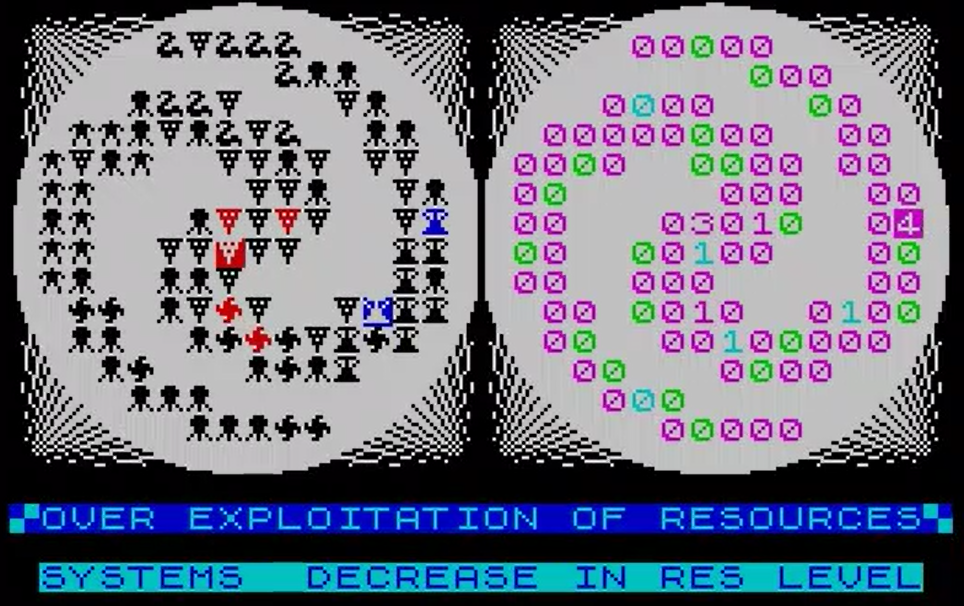
C2. In multiplayer
That’s where Nebula absolutely fails. There are two main reasons for that :
- First, the “round” system means each player needs to change seats (or send emails) up to 15 times every millennium, sometimes just to do things as engrossing as pressing U to attempt to quell unrest in one system. It baffles the mind that each player could not just program all his or her orders for the millennium and then pass the seat/savestate to the next player,
- Second, combat resolution absolutely does not work. As I said, combats are resolved sequentially (different systems don’t “merge” their attack) and according to naive odds (according to the manual “if 3 resource points are attacking 1 resource point then there is a 75% chance of success.“). Given the cost of travelling and the fact you want to leave one resource point on the system you come from, combats heavily favour the defenders, and therefore any “serious” attack is likely not only to fail but also to open the way for a counter-attack more likely than not to succeed.
Against the Drakars, this is not an issue. They are extremely aggressive and don’t care about defence, keeping the game dynamic. But players are different : they want to win and not to be wiped out in counter-attacks. Therefore, once the initial expansion phase is over, the borders become more or less static, with no one willing to send decisive attacks that are likely to fail anyway. The few attacks we had in our game were weak (to avoid depleting garrisons) and with low chance of success.
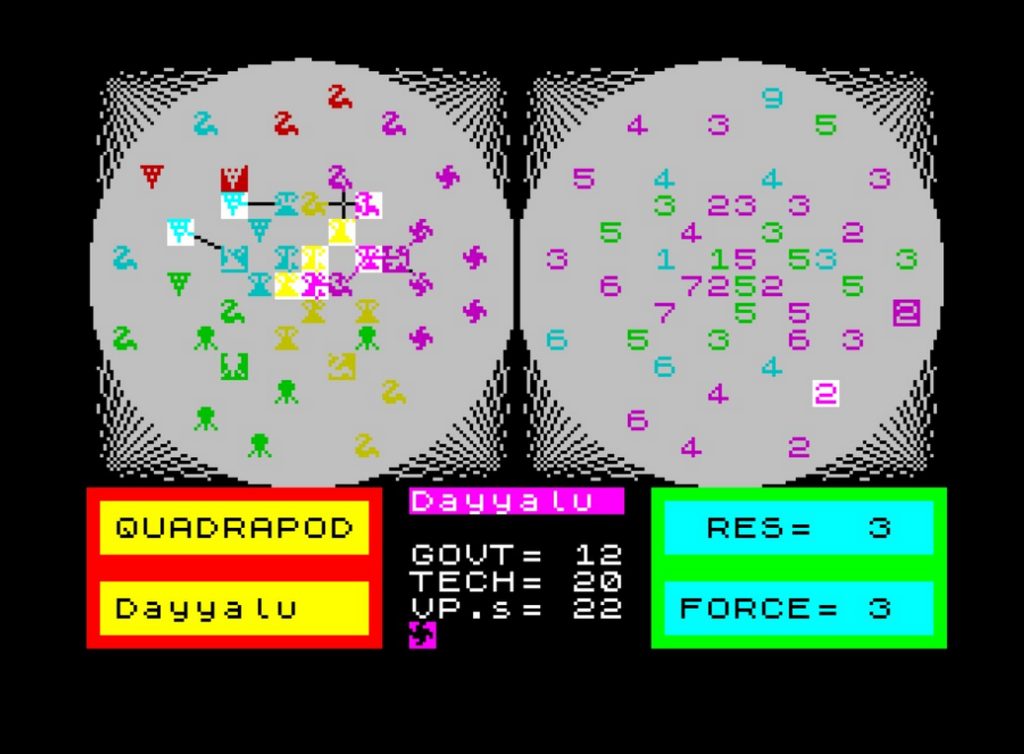
As the millennia were taking weeks to play with no significant change on the board, our will to carry on faded out – one player even stated he had “checked out” of the game. Ultimately, Nebula was the first multiplayer game we abandoned before the end by common consensus. It was that bad.
D. Scenario design and balancing
Adequate The game offers four maps, with fairly different philosophies in terms of design
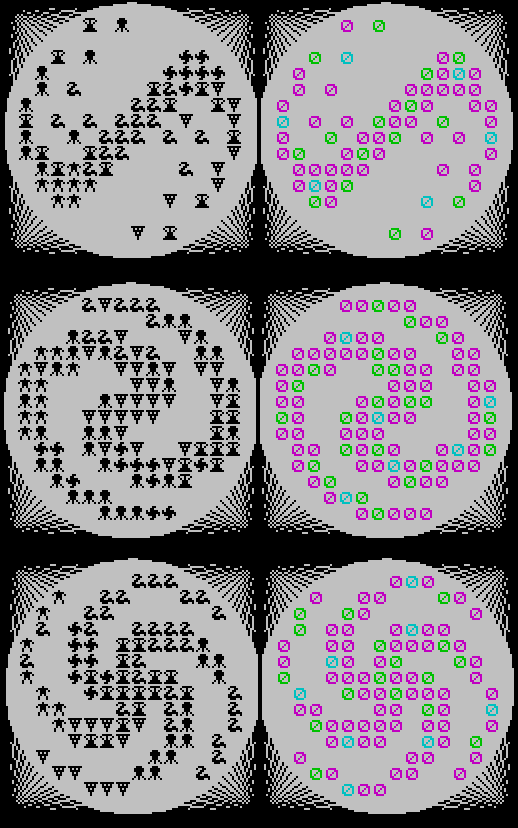
The Drakars are not smart, but as I stated they are fun to play against. If players optimise their start, the AI has an initial production disadvantage, but it is also easy for the players to handicap themselves by installing their initial Seat of Power on a green or even purple world. The many random events can introduce some significant chaos and diversity to the game, and I could play several games before being bored – in single-player anyway.
E. Did I make interesting decisions
Sometimes, typically a few times every turn. There were usually several types of decisions :
- At the beginning, the usual choice is between expanding toward a poor but strategically located systems or a rich and isolated system,
- Later, the choice is between attacking and in particular counter-attacking after losing a system. Attacks are risky, but systems that have just been conquered are more vulnerable
When the number of rounds available is low, there are some interesting decisions to make between what to do now and what to postpone. Sadly, most of the time the player has too many rounds rather than too few, so there is no arbitration to make there.
F. Final ratings
Obsolete. Nebula works – despite its obsolete status it ranks in the top half of my favourite games so far – but it clearly lacks playtesting and polish. The game is saved because it is so easy to play and also – paradoxically – by the weakness of the AI and the high randomness of the events, but it could have been so much more. It is certainly better than the various “beer & pretzel” galactic conquest games I have played so far : Galaxy, Andromeda Conquest, Galactic Empire, Conquering Worlds and Starclash – not bad for the second game of an eighteen years-old.
In multiplayer, Nebula is an unmitigated disaster to avoid at all costs. You can read here the perspective of the other players of my campaign – they have even more complaints than I have.
I could not find any review of Nebula. Gollop claims it sold well, but of course not as well as the game that made him famous in 1984 : Rebelstar Raiders – I know some of you have been waiting for this one for a long time.